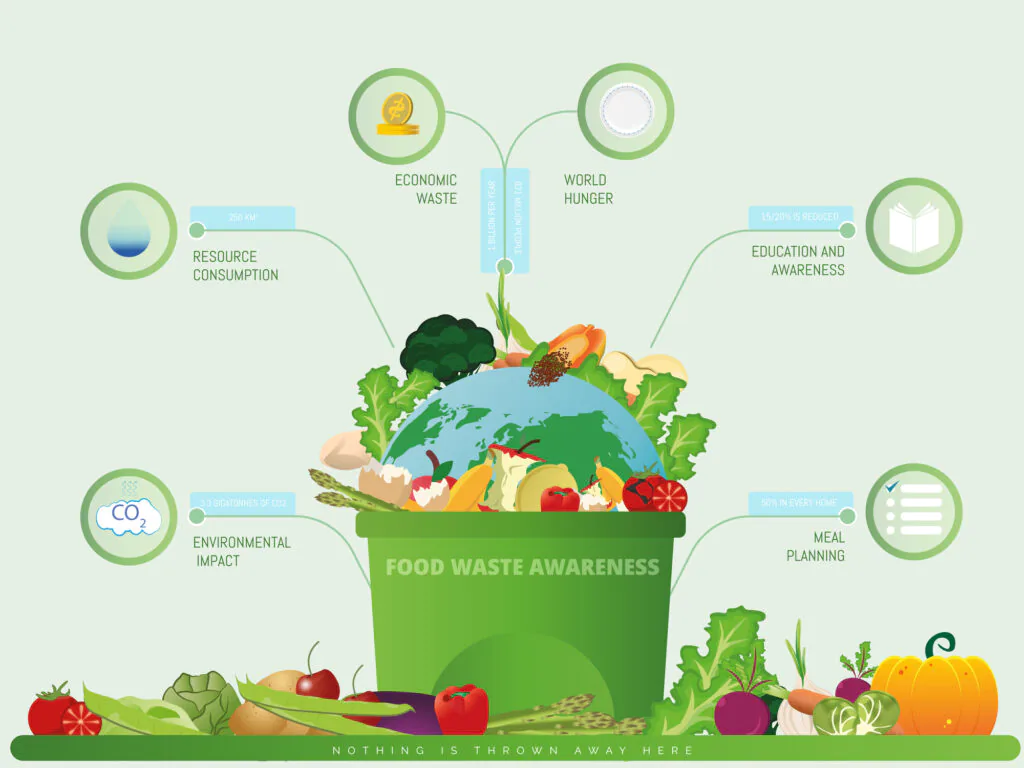Author: Sudeshna Ghosh
Solid waste management techniques have seen a significant evolution right from the start of human civilization till today. The process of burning solid waste has been replaced by newer technologies such as anaerobic digestion, thermal conversion, plasma gasification, and waste autoclave. Waste management has been the most prioritized agenda for many governments to reduce pollution and promote a healthy environment. However, waste management is not a piece of cake, as governments face several logistical, technological, and financial challenges along the way.
Solid Waste Management: The Key to a Cleaner, Greener Future

Solid waste management refers to the systematic process of collecting, treating, and disposing of solid wastes generated from various sources, including households, industries, and agriculture. This comprehensive approach encompasses several stages: collection, transportation, treatment, recycling, and final disposal, all aimed at minimizing environmental impact and protecting public health. Effective solid waste management is crucial for reducing pollution, conserving resources, and promoting sustainability within communities.
Top Challenges Faced by the Suppliers in the Solid Waste Management Market
Suppliers in the solid waste management market face a variety of challenges, particularly in developing countries. In addition to the “not in my backyard” mentality of communities towards waste management facilities and financial constraints, suppliers also grapple with issues related to waste composition, lack of infrastructure, and regulatory barriers. Below are some of the key obstacles faced by suppliers in this critical industry.
The "not in my backyard" mentality leads to community opposition against modern waste management facilities due to concerns over odors and health risks.
Low private investment in solid waste management arises from high initial costs and limited return on investment, compounded by insufficient government budgets.
Setting up recycling plants demands significant capital, with expenses for a 10MW facility potentially exceeding US$1 billion in infrastructure and US$100 million annually for operations.
As economies grow, the shift in waste composition requires suppliers to adapt their methods for collecting and processing increasingly diverse materials.
Inadequate collection systems and limited disposal facilities hinder effective solid waste management in many developing countries.
Unclear regulations and inconsistent enforcement create barriers for suppliers in securing necessary permits and hinder investment in waste management initiatives.
Waste Disposal Issues in Developing Country
The biggest challenge in implementing modern waste management infrastructures such as waste-to-energy plants, recycling centers, and ash landfills in developing nations is the “not in my backyard” mentality of the community. The majority of residents across the world oppose the installation of such facilities because of the pungent smell it creates and the risk of possible health hazards. This problem is largely persistent in the majority of the developing nations in the APAC region.
Financial Constraints
The amount of private investment in the field of solid waste management is alarmingly low because of the requirement of massive financial investment and limited opportunity to gain returns. Additionally, governments of developing nations allocate low budgets for solid waste management. The customer’s limited ability to pay for such services also hinders the growth of this market.
High Installation Costs
Installation of recycling plants doesn’t come cheap, costing millions and possibly billions of dollars in infrastructure costs in addition to monthly maintenance costs. For instance, companies will have to shell out around US$1 billion to set up a 10MW recycling plant alongside around US$100 million in operational and maintenance costs.
Changing Waste Composition
As countries develop economically, the composition of solid waste changes. In low-income countries, over half of the waste generated is food and green waste, while in high-income countries, plastic makes up a larger portion of the waste stream. This shift in waste composition requires suppliers to adapt their collection, sorting, and processing methods to handle the changing material mix.
Lack of Waste Management Infrastructure
Many developing countries lack the necessary infrastructure for effective solid waste management. This includes inadequate collection systems, insufficient transfer stations, and limited disposal facilities such as sanitary landfills or incineration plants. The absence of these critical components hinders suppliers’ ability to provide comprehensive waste management services.
Regulatory and Policy Challenges
Regulatory frameworks and policies related to solid waste management can pose significant challenges for suppliers. Unclear or inconsistent regulations, lack of enforcement, and limited coordination among government agencies can create barriers to investment and innovation in the sector. Suppliers may face difficulties in obtaining necessary permits, licenses, and approvals for their operations.
To overcome these challenges, suppliers need to work closely with local governments, communities, and other stakeholders to develop sustainable and inclusive waste management solutions. Investing in infrastructure, adopting new technologies, and fostering public-private partnerships can help suppliers navigate the complexities of the solid waste management market in developing countries.
To tackle these challenges head-on and revolutionize your approach to solid waste management,
Transforming Challenges into Solutions: A Roadmap for Effective Solid Waste Management
To effectively address the challenges faced by suppliers in the solid waste management market, particularly in developing countries, several strategic solutions can be implemented:
-
Community Engagement and Education
Fostering community involvement through education and awareness campaigns can help mitigate the "not in my backyard" mentality. Engaging residents in discussions about the benefits of waste management facilities can alleviate fears and build support for local initiatives.
-
Financial Incentives and Public-Private Partnerships
Encouraging private investment through financial incentives, such as tax breaks or grants, can help alleviate financial constraints. Establishing public-private partnerships can also facilitate resource sharing and investment in infrastructure development.
-
Adoption of Innovative Technologies
Investing in advanced recycling technologies and waste collection software can enhance operational efficiency and reduce costs. Innovations such as optical sorting machines and chemical recycling processes can improve material recovery rates and reduce the volume of waste sent to landfills.
-
Waste Composition Management
Implementing comprehensive waste audits will enable suppliers to better understand local waste streams and adapt their collection and processing methods accordingly. This data-driven approach allows for targeted strategies that address specific waste composition challenges.
-
Infrastructure Development
Governments and suppliers should collaborate to develop essential waste management infrastructure, including collection systems, transfer stations, and disposal facilities. This investment is crucial for creating a robust waste management ecosystem.
-
Regulatory Framework Improvement
Advocating for clearer regulations and consistent enforcement can help streamline the permitting process for waste management projects. Suppliers should work with government agencies to ensure that regulatory frameworks support sustainable practices and innovation.
-
Circular Economy Principles
Embracing circular economy principles—such as reducing waste at the source, promoting recycling, and encouraging product reuse—can significantly reduce the overall waste generated. Implementing extended producer responsibility (EPR) programs can hold manufacturers accountable for their products throughout their lifecycles.
-
Sustainable Packaging Initiatives
Encouraging the use of sustainable packaging materials can minimize waste generation from packaging. Collaborating with businesses to adopt eco-friendly packaging solutions will contribute to overall waste reduction efforts.
By adopting these solutions, suppliers can navigate the complexities of solid waste management more effectively, leading to sustainable practices that benefit both communities and the environment. Collaborative efforts among governments, suppliers, and communities are essential for creating a resilient solid waste management system that not only addresses current challenges but also paves the way for a cleaner, healthier future.
Enhance Your Waste Collection and Disposal Process with Best Routes on SpendEdge
SpendEdge offers valuable insights into optimizing waste management processes through its Global Waste Management Category Procurement Market Intelligence Report. This report highlights the pressing need for efficient waste management solutions, particularly in developing nations where rapid urbanization is leading to increased waste generation. By leveraging advanced technologies and best practices, organizations can enhance their waste collection and disposal strategies, ultimately reducing costs and improving environmental outcomes.
The report emphasizes the importance of adopting sustainable practices, such as recycling and minimizing waste volumes, while also addressing challenges like financial constraints and regulatory complexities. With the right procurement strategies and data-driven insights, businesses can navigate the evolving waste management landscape effectively. For those interested in improving their waste management processes, SpendEdge provides tailored solutions and resources to help achieve optimal outcomes.
Don’t get left behind—To supercharge your waste management strategy and outpace the competition with SpendEdge’s expert insights,
Conclusion
Effective waste management is vital for protecting the environment, and public health, and ensuring a sustainable future. Individuals can support waste reduction initiatives, while organizations can invest in recycling infrastructure and sustainable practices. By collaborating, we can build a cleaner, healthier world. Advanced software solutions can enhance waste management processes, optimize resource recovery, and provide critical insights for decision-making. Together, we can significantly reduce waste’s environmental impact and promote a circular economy.




